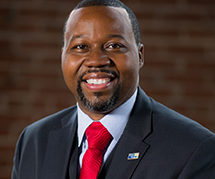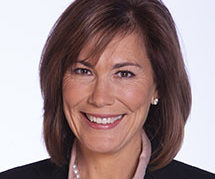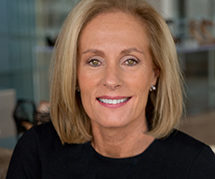Video, above: Professor Panos Kouvelis, Emerson Distinguished Professor of Operations and Manufacturing Management and Director of The Boeing Center for Supply Chain Innovation at Washington University speaks about his research on managing commodity price volatility in the supply chain in the latest Boeing Center digital production.
When commodity prices are stable, firms usually agree upon fixed wholesale price contracts, quantity discounts, buybacks and even some revenue-sharing schemes. But in volatile commodity price environments, annual price volatility can be as high as 60%, resulting in the need for escalation clauses and adjustable contracts. High volatility may even create situations where vulnerable suppliers fail to meet contractual obligations.
The focus of the new research is to find ways to better manage risks for such environments through using the right contracts and when it is appropriate to use financial hedges. One example of contracts often advocated for in such cases is the pass-through, or index contract, which is used to describe how the supplier will pass some of the increased material costs down to the buyer. These contracts can be effective as long as the downstream buyer is “big” enough to absorb the risk or has financially hedged such risks appropriately.
Pass-through contracts have not been viewed favorably by the corporate finance community. For example, environments of perfect markets with no financial frictions can be dominated by the so-called “coordinating contracts,” such as revenue-sharing or two-part tariff contracts. Coordinating contracts achieve “first best” (i.e., the same profit as a single firm owning and running the whole supply chain), and with appropriate setting of their parameters, can coordinate the commodity risks for short lead-time environments.
Long lead-time environments create the need for appropriate penalty structures on top of such contracts, a feature not mentioned in the current literature, but elucidated in Kouvelis’ research. However, in an environment of financing frictions (e.g., firms have limited working capital and need to borrow to execute their supply chain transactions), the coordinating contracts might be ineffective in the handling of financing costs.
In many cases, a pass-through contract with a downstream buyer that hedges commodity risks can be more effective. These situations are common when under capitalized suppliers with good margins contract with larger buyers in high volatility price environments, such as the auto, appliance, and aerospace manufacturing settings.
To learn more, read the abstract from Prof. Kouvelis’ paper below, or download the paper HERE.
Paper title: “The Role of Pass-Through Contracts in Environments with Volatile Input Prices and Frictions”
Authors: Panos Kouvelis, Danko Turcic (Olin), Wenhui Zhao, Shanghai Jiao Tong University (SJTU) – Antai College of Economics and Management
Abstract
We model a bilateral supply chain with stochastic demand, stochastic input costs, production lead times, and working capital constraints. The supply chain participants contract as follows: Either they use the pass-through contract under which the upstream supplier passes her entire commodity input cost onto the downstream assembler, or they use an appropriately adapted revenue sharing contract under which the firms split both the production costs and the operating revenues. In the absence of financing needs for either firm, the pass-through contract is dominated by the revenue sharing contract – even if downstream buyer hedges all input costs. However, when working capital limitations drive financing needs in the chain, the financial frictions break the coordinating nature of the revenue sharing contract, and the created double marginalization inefficiencies and financing costs for firms with differential working capital and financing needs weaken the profit performance of the contract. Pass-through contracts do dominate revenue sharing ones when there are low (or no) working capital suppliers. Hedging behavior can be justified even in the absence of financing frictions for pass-through contracts, and it only involves the buyer. Hedging behavior in revenue sharing contracts happens when financing is needed, and either firms both hedge, or neither hedges, all commodity purchases in the supply chain. Double marginalization inefficiencies versus financing costs are the main factors in determining the effectiveness of the contracts, with financing cost dominated environments favoring the pass-through contract.

Website • LinkedIn • Subscribe • Facebook • Instagram • Twitter • YouTube














